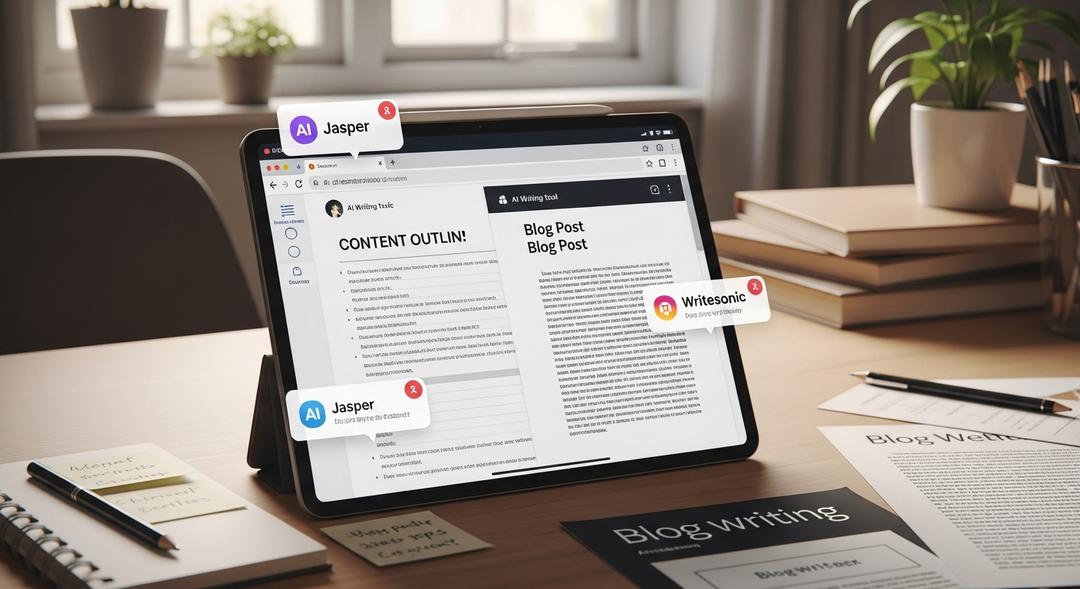Legal document drafting technology has rapidly become indispensable for law firms and in-house legal departments. These modern solutions combine smart automation with deep data insights, transforming how legal documents are produced and greatly reducing the chance of costly mistakes.
With contracts and compliance requirements getting more complex by the day, using innovative legal document drafting tools enables legal experts to simplify their daily processes, ensure they adhere to important regulations, and dedicate more time to essential strategic legal work.
What are the benefits for using Legal Document Drafting AI Tools
Legal professionals and teams reap notable benefits by adopting powerful document automation solutions in their workflows.
- Improved document drafting accuracy and greater consistency
- Significant time savings with automated clause detection and reviews
- Better compliance and risk reduction due to integrated legal knowledge
1. Litera Draft
Features
- Quick document comparison and advanced proofreading
- Automated drafting steps with robust workflow tools
- Template management and personalized clause libraries
- Strong compatibility with well known legal platforms
Pros
- Helps produce highly accurate, professional drafts
- Lowers the need for repetitive manual edits
- Easy Microsoft Word plug in
- Facilitates team document collaboration
Cons
- May take some time to master all features
- Consistent software updates needed
- Certain features unavailable on less common devices
Pricing: Litera Draft pricing is available by request and depends on firm size and system integration.
2. Kira
Features
- Learning-based document examination
- Models can be tailored for distinctive contract terms
- High volume contract analysis and summary reports
- Offers both secure cloud and on-site deployment
Pros
- Effortlessly pinpoints and pulls contract details
- Shrinks the due diligence timeline
- Deployment options fit unique IT requirements
- Adaptable for various legal focus areas
Cons
- Complex initial setup process
- Most optimal for larger documentation projects
- Advanced set up needs subject expertise
Pricing: Kira pricing is tailored for each firm and available by inquiry.
3. Lexis+ AI
Features
- Integrated research and drafting toolset
- Document analysis offers citation suggestions
- Smooth search and data retrieval options
- Extensive clause bank to accelerate drafting
Pros
- Expansive legal research content built in
- Speeds up document citation and verification
- Intuitive interface simplifies drafting for all experience levels
- Effective in managing compliance
Cons
- Best features require active LexisNexis subscription
- Frequent updates may impact user routines
- Premium cost can be restrictive for smaller offices
Pricing: Lexis+ AI uses subscription tiers tailored to client needs.
4. Harvey
Features
- Automates document review and summarization
- Legal research and drafting through chat-based tools
- Uses language processing to handle complex questions
- Easy integration with practice management platforms
Pros
- Makes research and document creation more manageable
- Cuts down on unnecessary manual tasks
- User-friendly at all expertise levels
- Flexible for teams of any size or location
Cons
- Development ongoing in some legal sectors
- Certain features may be out of reach for small practices
- Initial training required for to maximize results
Pricing: Harvey’s plans and costs depend on organization scale and usage needs.
5. Gavel Exec
Features
- Automates assembly of contracts and legal documents
- Streamlines workflow steps for legal procedures
- Supports complex clauses with customizable logic features
- Simple collaborative tools and clear interface
Pros
- Highly adaptable for a variety of legal specialties
- Boosts productivity across the team
- Facilitates secure document sharing and signing
- Prevents drafting mistakes using logic-based processes
Cons
- Initial setup can be lengthy for intricate templates
- Integrations may be limited for certain platforms
- Complex workflow building could need technical assistance
Pricing: Gavel Exec follows a subscription pricing model based on user numbers and document activity.
6. DocJuris
Features
- Contract review includes automated redlining
- Clause repository designed for negotiations
- Collaboration features for team-based negotiations
- Detailed risk analysis dashboards
Pros
- Accelerates contract negotiation processes
- Supports a uniform contract review workflow
- Promotes visibility into deal risks
- Enhances teamwork between inside and outside counsel
Cons
- Learning optimized workflows can take time
- Third party app connections are somewhat limited
- Performance may fluctuate with unusual document types
Pricing: DocJuris provides tiered subscriptions, including custom options for large teams.
7. Aline
Features
- Automates drafting for compliance and various policy documents
- Efficient templates and structured content management
- Collaboration for multi department teamwork
- Integration tools for workflow speed
Pros
- Designed for meeting industry compliance
- Makes collaboration easy across divisions
- Saves time with templates for repeat drafts
- Tracks versions with comprehensive audit trails
Cons
- Advanced customization needed for some advanced legal work
- Currently only supports English
- Advanced features require higher paid plans
Pricing: Aline’s pricing is subscription based and varies by team and function needs.
8. ClauseBase
Features
- Dynamic clause library for fast template building
- Logic-driven document assembly and automation
- Live editing and content suggestions while drafting
- Supports documents for multiple languages and jurisdictions
Pros
- Significantly accelerates the drafting of tailored documents
- Perfect for international legal practices
- Simple to use logic editor
- Ensures standardization across entire firm
Cons
- Complex arrangements need upfront time investment
- Internet required for team editing
- First time users might need training to adapt
Pricing: ClauseBase subscription options are flexible and range up for enterprise needs.
9. MyCase IQ
Features
- Handles legal document creation and storage automatically
- Built in with case management integration
- Document analytics for change tracking
- Central system for templates and quick document access
Pros
- All in one software for management and document needs
- Eases repetitive document tasks for any case load
- Streamlines billing, scheduling, and documentation together
- Accessible from both mobile devices and desktop
Cons
- Some premium features found only in upper pricing plans
- Customizing templates can be limited by system
- Transitioning from legacy systems may be time intensive
Pricing: MyCase IQ uses monthly or yearly rates depending on user numbers and chosen package.
Conclusion
Legal document drafting technology has changed the way modern legal professionals work. It boosts efficiency, increases accuracy, and makes teamwork smoother at every stage of document creation.
No matter the size of your firm, these innovative platforms help legal specialists optimize drafting tasks, reduce compliance risk, and streamline the document journey from first draft to signature.
Choosing the right software involves weighing your team’s unique requirements, the volume of legal work, and how each tool integrates with your current systems. Every solution brought to the spotlight here offers its own advantages, so a careful review of their capabilities and pricing will point your practice toward the most beneficial partnership. If you are interested in similar productivity options for your firm’s non legal content, see these leading general document creation tools for further workflow enhancements.








